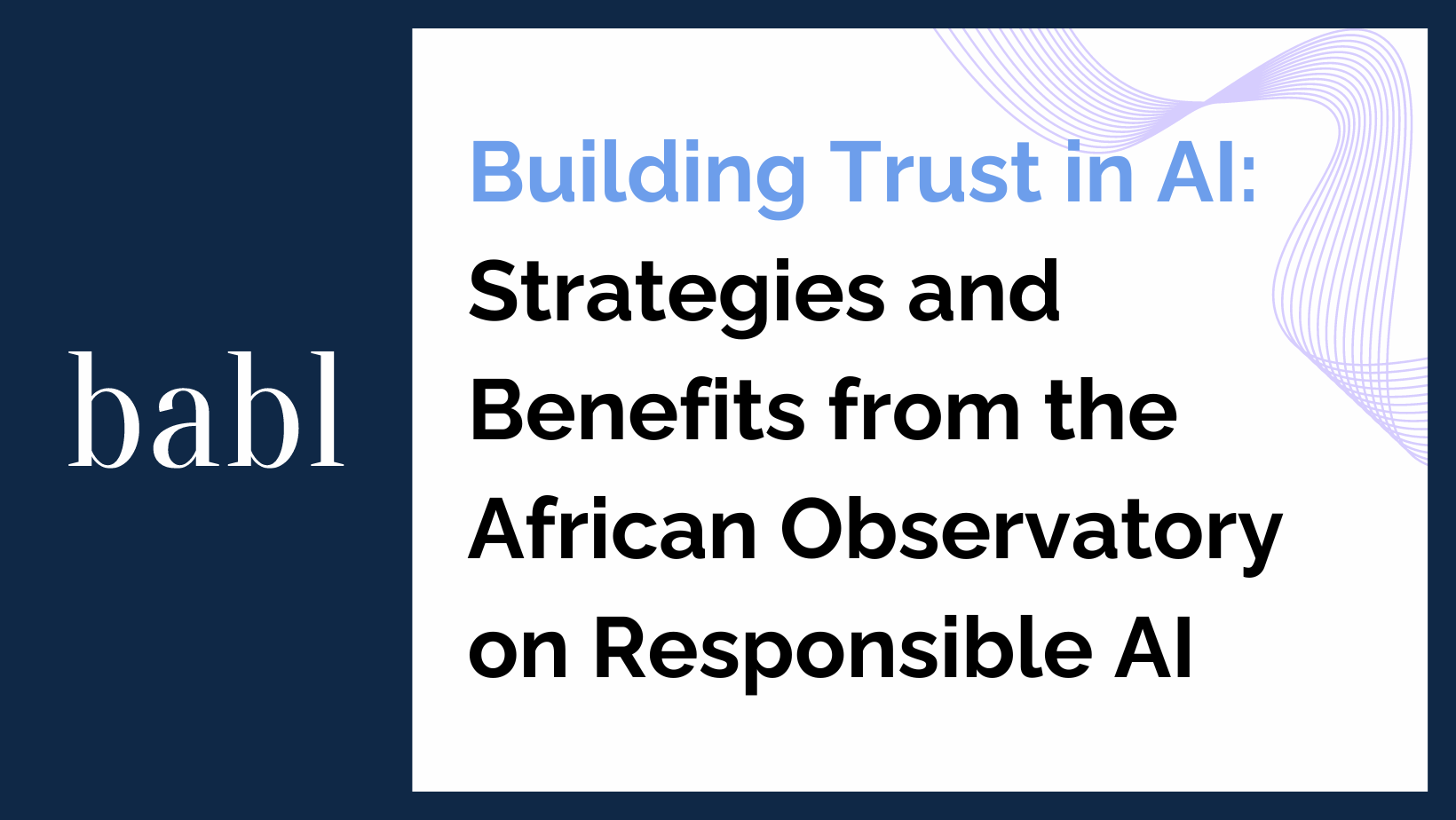In the rapidly evolving field of artificial intelligence (AI), trust is a crucial component for successful adoption and implementation. Trust in AI systems is essential not only for consumers but also for employees and investors. Building this trust requires a comprehensive approach that addresses both internal and external stakeholders. That’s why the African Observatory on Responsible AI unveiled its 2022-2023 technical report, shedding light on significant advancements and future directions in AI governance, gender inclusion, and community building across the African continent.
Understanding the Importance of Trust in AI
Trust in AI systems is foundational for their acceptance and effective use. Without trust, stakeholders may be reluctant to engage with AI technologies, leading to underutilization and potential setbacks. Trust can be cultivated by ensuring transparency, accountability, and ethical practices in AI development and deployment.
Internal Trust: Engaging Employees
-
- Transparent Communication: Open dialogue about AI implementation helps demystify the technology. Employees need to understand how AI will impact their roles and the broader organization. This can be achieved through regular updates, workshops, and training sessions.
-
- Training and Development: Providing employees with the necessary skills to work alongside AI technologies is crucial. Training programs should focus not only on technical skills but also on ethical considerations and the limitations of AI.
-
- Involvement in AI Governance: Including employees in AI governance processes can foster a sense of ownership and responsibility. This can be done through AI ethics committees or working groups where employees from different departments can provide input on AI policies and practices.
External Trust: Building Consumer and Investor Confidence
-
- Transparency in AI Operations: Clearly explaining how AI systems make decisions is vital for building trust with consumers and investors. This involves providing accessible information about AI models, data sources, and the decision-making process.
-
- Accountability Mechanisms: Establishing accountability mechanisms ensures that there is oversight and responsibility for AI systems. This includes having clear policies for addressing errors and biases, and providing channels for stakeholders to report concerns.
-
- Ethical AI Practices: Adhering to ethical guidelines in AI development and deployment helps build credibility. This involves conducting regular audits to identify and mitigate biases, ensuring data privacy, and following best practices for AI ethics.
Strategies for Building Trust in AI
-
- Develop Comprehensive AI Governance Frameworks: Implementing robust AI governance frameworks that address ethical considerations, transparency, and accountability is essential. These frameworks should be aligned with industry standards and regulatory requirements.
-
- Engage in Continuous Monitoring and Auditing: Regular monitoring and auditing of AI systems help ensure they remain compliant with ethical standards and perform as expected. This can involve internal reviews as well as third-party audits.
-
- Foster a Culture of Ethical AI Use: Creating a corporate culture that values ethical AI use involves setting clear expectations and providing ongoing education about the ethical implications of AI. Encouraging employees to raise concerns and providing channels for reporting unethical practices are also important.
-
- Leverage Case Studies and Best Practices: Learning from successful implementations of AI by other organizations can provide valuable insights. Case studies highlighting how companies have built and maintained trust in AI can serve as benchmarks for others.
Benefits of Building Trust in AI
-
- Enhanced Consumer Loyalty: Consumers are more likely to remain loyal to brands they trust. By demonstrating transparency and ethical practices, companies can build stronger relationships with their customers.
-
- Improved Employee Engagement: Employees who trust their organization’s AI initiatives are more likely to be engaged and motivated. This can lead to higher productivity and innovation.
-
- Increased Investor Confidence: Investors are more likely to support companies that demonstrate responsible AI practices. Transparency and accountability can reduce perceived risks and attract investment.
-
- Regulatory Compliance: Adhering to ethical AI practices and governance frameworks helps ensure compliance with regulations. This can prevent legal issues and fines, and enhance the company’s reputation.
Case Study: The African Observatory on Responsible AI
The African Observatory on Responsible AI provides a valuable example of how to build trust in AI systems. Established in 2022, the Observatory focuses on promoting African perspectives in AI governance. It emphasizes the importance of inclusive and responsible AI governance, particularly in the context of Africa’s diverse democratic, constitutional, and legal mechanisms of accountability.
Key Initiatives
-
- Policy Engagement and Science Communication: The Observatory actively engages with policymakers and the public to communicate the importance of responsible AI. This includes producing policy briefs and hosting public forums to discuss AI ethics and governance.
-
- Research and Knowledge Creation: By supporting research on AI ethics and its impact on African societies, the Observatory builds a strong evidence base to inform policy and practice. This research includes examining gender inclusion and the ethical challenges of AI.
-
- Network Convening and Capacity Development: The Observatory creates networks of researchers and institutions to facilitate knowledge exchange. It also offers training programs to build capacity in AI ethics and policy among African scholars and practitioners.
-
- Public Engagement and Advocacy: Ensuring that communities are engaged in discussions about AI is a priority. The Observatory works to empower marginalized voices and ensure that AI development benefits all sectors of society.
Building internal and external trust in AI systems is essential for their successful adoption and implementation. By focusing on transparency, accountability, and ethical practices, businesses can foster trust among employees, consumers, and investors. The African Observatory on Responsible AI serves as a model for how organizations can engage in responsible AI governance and build a trustworthy AI ecosystem.
Need Help?
By adopting similar strategies, you can not only enhance your reputation and compliance but also gain a competitive advantage. Don’t hesitate to reach out to BABL AI. Their Audit Experts can address your concerns and questions while offering valuable insights.





